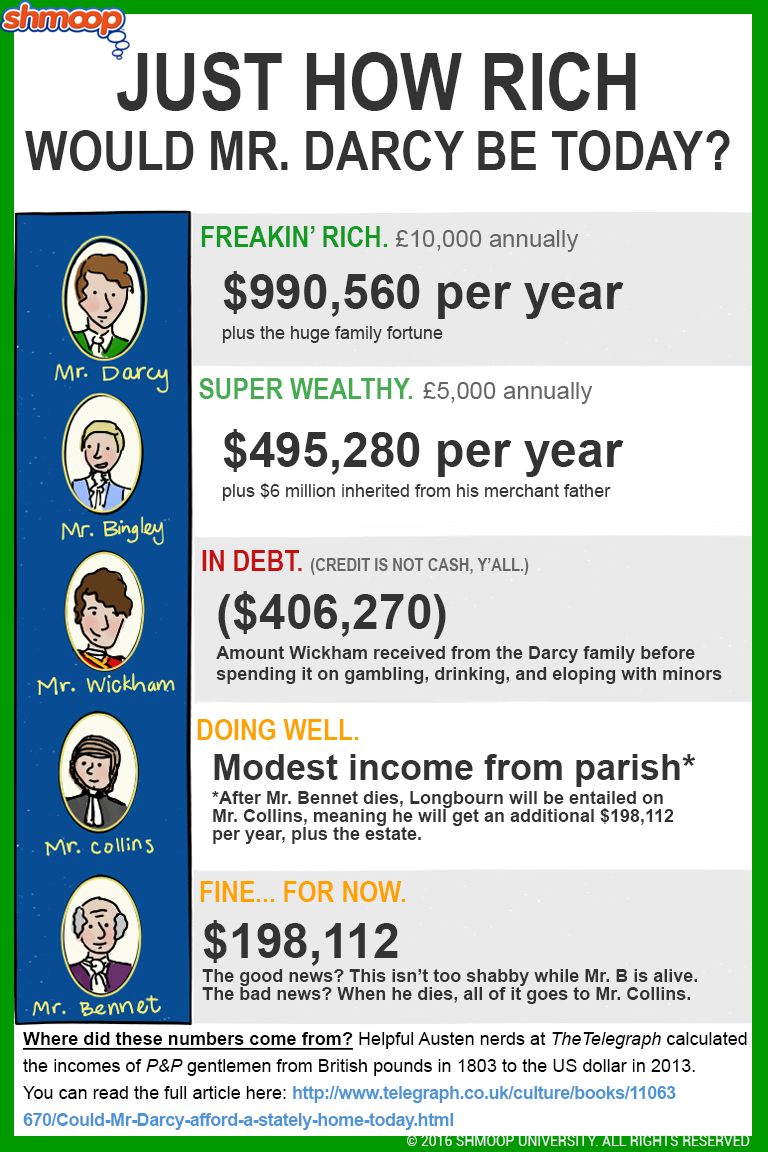Symbolism, Imagery, Allegory
When Mr. Collins comes to visit the Phillips' estate at Meryton, he compares the drawing room to the "small summer breakfast parlour at Rosings" (16.2). He explains that in just one of Lady Catherine's multiple drawing rooms, the "chimney-piece alone had cost eight hundred pounds" (16.2).
When Lizzy gets to Rosings, she's definitely impressed: it's a "handsome, modern building" with a nice park, but she finds herself "but slightly affected" (i.e., not moved at all) by Mr. Collins's "enumeration of the windows in front of the house, and his relation of what the glazing altogether had cost Sir Lewis de Bourgh" (29.8).
But when she visits Pemberley? Totally different. Just check out Lizzy's reaction:
It was a large, handsome stone building, standing well on rising ground, and backed by a ridge of high woody hills; and in front, a stream of some natural importance was swelled into greater, but without any artificial appearance. Its banks were neither formal nor falsely adorned. Elizabeth was delighted. She had never seen a place for which nature had done more, or where natural beauty had been so little counteracted by an awkward taste. They were all of them warm in their admiration; and at that moment she felt that to be mistress of Pemberley might be something! (43.3)
Pemberley is grand, but it's also natural. Check out the way the "stream of some natural importance" (translation: a little creek that was already there) has been "swelled into great, but without any artificial appearance." In other words, the gardeners have taken the natural features of the landscape and just improved them. They're not draining wetlands to make a park. They're working with what they were given to make it better.
Sound familiar? It should, because it's a big, fat symbol for Darcy himself. He's a "stream of some natural importance" that's been made even better by good breeding and good education. By this point, we don't even need to know that "The rooms were lofty and handsome, and their furniture suitable to the fortune of its proprietor … neither gaudy nor uselessly fine; with less of splendour, and more real elegance, than the furniture of Rosings" (43.5). (Although we appreciate knowing it, anyway.)
At first, Lady Catherine and Darcy seem pretty similar. They're both haughty, cold, and proud. But, thanks to their estates, we know that deep down inside they're nothing alike.

(Click the infographic to download.)